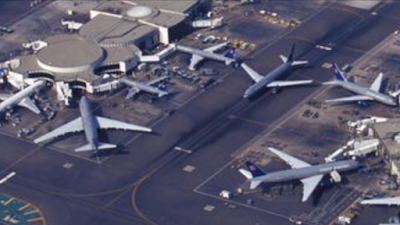Au départ, il y a une enquête du toujours impeccable Geoff Manaugh sur les services de sécurité de LAX, l'aéroport international de Los Angeles.
A l'arrivée, il y a une réflexion politique remarquable sur la façon dont le terrorisme et l'obsession sécuritaire sont en train de transformer les lieux de transit en forteresses modernes devenant des entités politiques quasi-autonomes disposant, pour certaines d'entre elles, de plus de puissance de surveillance et d'espionage que certains états.
(...) "Under the moniker of “critical infrastructure protection,” energy-production, transportation-logistics, waste-disposal, and other sites have been transformed from often-overlooked megaprojects on the edge of the metropolis into the heavily fortified, tactical crown jewels of the modern state.
Bridges, tunnels, ports, dams, pipelines, and airfields have an emergent geopolitical clout that now rivals democratically elected civic institutions." (...)
(...) "It might sound like science fiction, but, in 20 years’ time, it could very well be that LAX has a stronger international-intelligence game than many U.S. allies. LAX field agents could be embedded overseas, cultivating informants, sussing out impending threats.
It will be an era of infrastructural intelligence, when airfields, bridges, ports, and tunnels have, in effect, their own internal versions of the CIA—and LAX will be there first." (...)Une analyse qui peut être mise en regard avec "Airport : the perfect space for a new terrorism museum ?"

